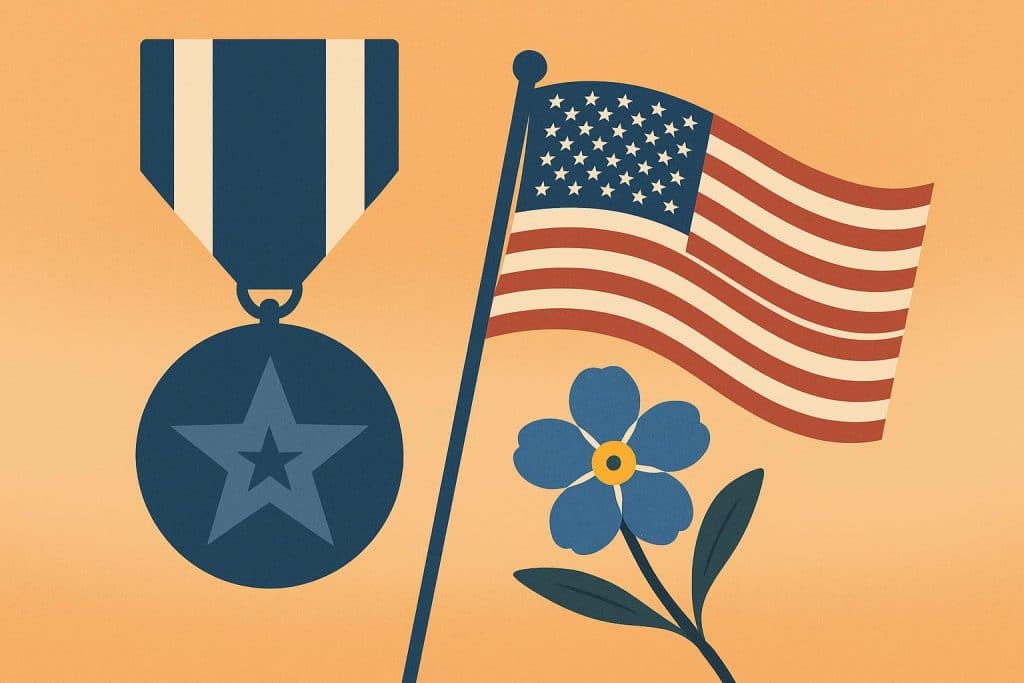Caring for veterans who are experiencing dementia presents unique challenges and responsibilities in hospice settings. These individuals have dedicated their lives to serving their country, often carrying experiences that can influence both their emotional and cognitive well-being. Dementia complicates communication, decision-making, and daily living activities, requiring an approach that balances compassion, patience, and structure. For veterans in hospice, the goal shifts from curative treatment to comfort, dignity, and quality of life. We will explore strategies to provide meaningful care that honors their service, addresses cognitive decline, and supports both the veterans and their families through a period that can be emotionally and physically demanding.
Tailored Approaches for Veterans with Dementia
1. Creating a Familiar and Secure Environment
Veterans with dementia often experience confusion, anxiety, and memory loss, which can be intensified in unfamiliar surroundings. Establishing a consistent, secure environment at Three Oaks Hospice is crucial to reducing stress and promoting comfort. Personal items, photographs, and memorabilia reflecting their military service can serve as anchors to positive memories, providing reassurance and familiarity. Beyond visual cues, maintaining regular daily routines can help veterans feel more grounded and reduce disorientation. Staff should be trained to recognize triggers that increase agitation, such as sudden changes in schedule, unfamiliar visitors, or loud noises. Thoughtful adjustments, such as dimmed lighting, quiet areas, and structured activities, contribute to a supportive setting that allows veterans to remain as engaged and comfortable as possible.
2. Communication Strategies for Cognitive Challenges
Dementia can make verbal communication challenging, and veterans may struggle to express needs or understand complex instructions. Adopting clear, patient, and compassionate communication techniques is essential. Short, simple sentences, maintaining eye contact, and speaking slowly can improve comprehension and reduce frustration. Nonverbal communication, such as gestures, gentle touch, or facial expressions, often conveys reassurance more effectively than words alone. Listening attentively and validating emotions, rather than correcting inaccuracies, helps build trust and emotional security. Care teams should also involve family members in communication strategies, as familiar voices and gestures can enhance understanding and comfort for veterans, fostering a sense of connection even when cognitive abilities decline.
3. Addressing Physical and Emotional Needs
Veterans in hospice with dementia require careful attention to both physical and emotional well-being. Symptom management, including pain relief and comfort measures, remains a central focus, as unmanaged symptoms can exacerbate agitation and confusion. Emotional support is equally important, as veterans may experience grief, anxiety, or frustration linked to memory loss and the end-of-life process. Providing outlets for emotional expression, such as storytelling, music therapy, or simple recreational activities, can foster a sense of purpose and engagement. Social workers, chaplains, and volunteers can offer support to address fears, honor military service, and help veterans navigate complex emotions. A coordinated approach ensures that each veteran receives care tailored to both cognitive limitations and personal values.
4. Family and Caregiver Involvement
Family members play an integral role in supporting veterans with dementia in hospice. They provide insight into personal preferences, history, and behavioral patterns, which are essential for individualized care planning. Encouraging family participation in daily routines, therapy sessions, and memory-oriented activities helps maintain connection and reduces feelings of isolation for both the veteran and loved ones. Providing guidance and resources for caregivers, such as education on dementia progression, communication techniques, and coping strategies, enhances their confidence and effectiveness. Hospice teams can also offer respite services, allowing families time to rest while ensuring the veteran receives continuous, compassionate care. Strong collaboration between family and care staff reinforces stability, comfort, and dignity.
5. Honoring Military Service and Identity
Maintaining a sense of identity is particularly meaningful for veterans in hospice, especially when dementia affects memory and recognition. Acknowledging military service through ceremonies, uniforms, or military music can provide moments of pride and familiarity. Staff should engage veterans in conversations about their experiences, when possible, and incorporate service-related themes into daily care routines and activities. Recognition of accomplishments and experiences reinforces self-worth, reduces anxiety, and fosters emotional well-being. Hospice programs can also collaborate with veteran organizations to provide additional support, ensuring that service history is honored and integrated into the care environment. Preserving identity contributes to a dignified and respectful hospice experience.
6. Safety and Supervision Considerations
Dementia increases the risk of falls, wandering, and other safety concerns. In hospice settings, balancing safety with independence is critical. Regular assessments of the living environment, including furniture placement, lighting, and accessibility, help minimize hazards. Monitoring for changes in mobility, cognitive function, or behavior ensures that care adjustments are timely and effective. Staff should be trained to respond calmly to incidents, de-escalate agitation, and provide reassurance. Implementing safety protocols without creating a restrictive environment preserves autonomy while reducing risks. The integration of medical equipment, mobility aids, and technology-based monitoring can further support safe, comfortable care while allowing veterans to maintain as much independence as possible.
7. Cultural and Ethical Considerations
Veterans come from diverse backgrounds, and dementia care in hospice must respect cultural, religious, and ethical considerations. Personal beliefs may influence end-of-life decisions, preferences for family involvement, and approaches to comfort and symptom management. Understanding and honoring these beliefs supports holistic care that aligns with the veteran’s values. Ethical dilemmas can arise when cognitive decline affects decision-making capacity. Clear communication with family members, care teams, and legal representatives ensures that choices reflect the veteran’s wishes. Integrating culturally sensitive practices and honoring traditions reinforces dignity, trust, and emotional stability, creating an environment where veterans feel respected and valued in their final days.
Supporting veterans with dementia in hospice settings requires a thoughtful, compassionate approach that balances cognitive, emotional, and physical needs while honoring their service and identity. Creating familiar, secure environments, employing effective communication techniques, addressing physical and emotional well-being, and involving family members are essential components of care. Recognizing military contributions and integrating identity-affirming activities help maintain dignity and purpose. Ensuring safety, respecting cultural values, and navigating ethical considerations further strengthen the hospice experience for veterans and their loved ones.
